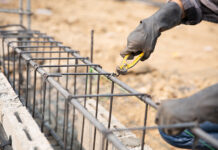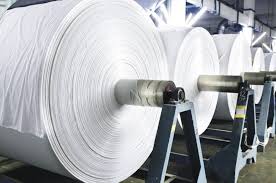ISLAMABAD: Turning down the request on the part of textile exporters, private banks have refused to reschedule loans for the revival of sustainable sick textile units. The revival of textile units running under capacity was aimed at increasing the exports in the textile sector.
Talking to Pakistan Today, Senate Standing Committee on Textile Chairman Senator Mohsin Aziz said that banks refused to consider the direction of the standing committee and request of members of All Pakistan Textile Mills Association (APTMA) for restructuring loan for around 35 textile units. “We had asked the banks through State Bank of Pakistan (SBP) to revive the sick units which, in case of revival, could earn over $1 billion in foreign exchange and create five million jobs. However, according to SBP, the private banks are not willing to accept the proposal of textile sector,” he said.
The revival existing units were much needed at a time when exports have declined from $25 billion to $20 billion in the last four years. “We may further contact SBP in near future for providing at least required working capital to the textile units,” he said, adding that the functioning of the existing machinery would also help in taking maximum benefit from GSP Plus facility from the European Union.
On the other hand, Hassan Iqbal, Textile ministry secretary (now division after its merger with the ministry of commerce) told Pakistan Today that the government had supported some textile units for revival. “A large number of machinery were installed when there was high demand in past without keeping in view the long term feasibility of such units. A revival of few units is not the solution since the old machinery are not cost effective,” he said, adding that the exporters instead of running the de-rated machinery should opt for the latest machinery.
According to him, the older machines consume 40 per cent more power than the latest basic textile machines. New machines produce more with only 33 per cent of the workforce needed in older machines. The cost of energy came substantially down in 2016. The textile industry in Punjab was completely dependent on the state supplied 18 hours per day of uncertain power and average six hours natural gas supply during summer in 2015.
According to sources, the revival of only local textile units in Faisalabad could help getting $1 billion foreign exchange. Owners of these units have spent billions of rupees on its infrastructure and machinery and are in a position to start operation as soon as the running finance is made available. However, a major bottleneck was the prudential regulations of the SBP as the banks are not giving loans to these units because of Non-Performing Loans (NPL) Clause.
An SBP spokesperson had earlier informed Pakistan Today that a meeting of the Senate Standing Committee on Textile was held on January 03, 2017 at the SBP to discuss rescheduling, restructuring of defaulted loans of sick textile units. In the meeting, it was decided that SBP will be playing a facilitating role and will oversee whether the restructuring decisions are taken on merit. A senior SBP official will serve as a focal person to facilitate the restructuring of defaulted loans of the textile units. In this regard, preliminary meetings with representatives of textile mills and banks have already been held, advising the banks to only consider restructuring of those units which can be revived on a sustainable basis.”
























